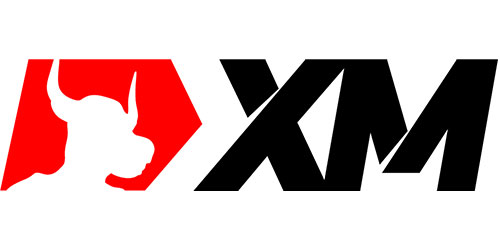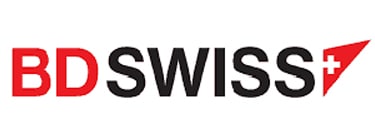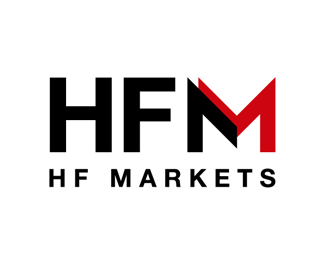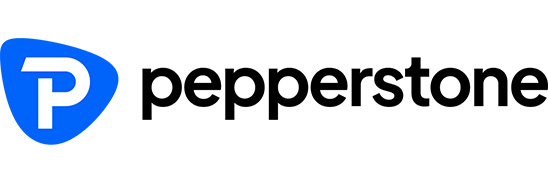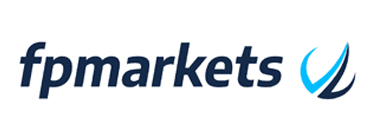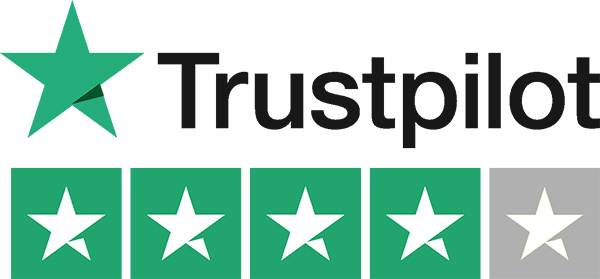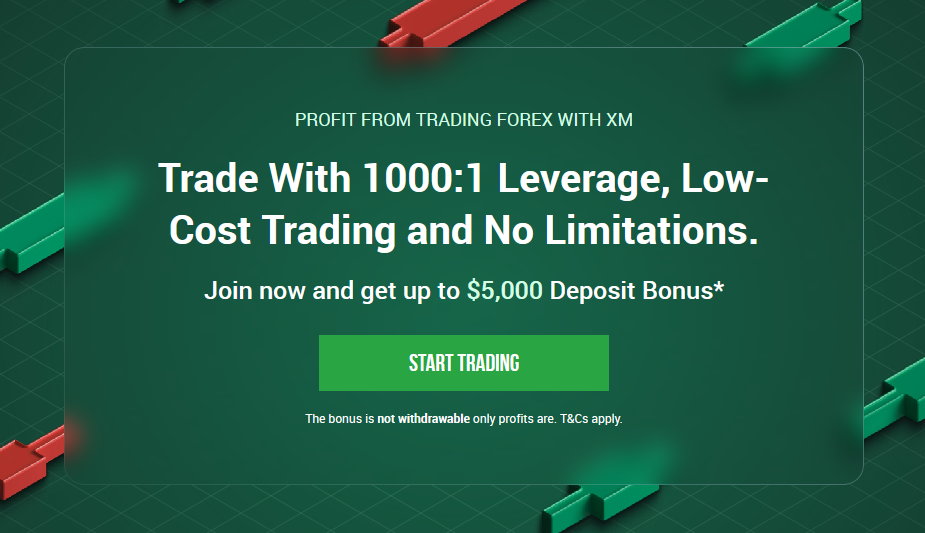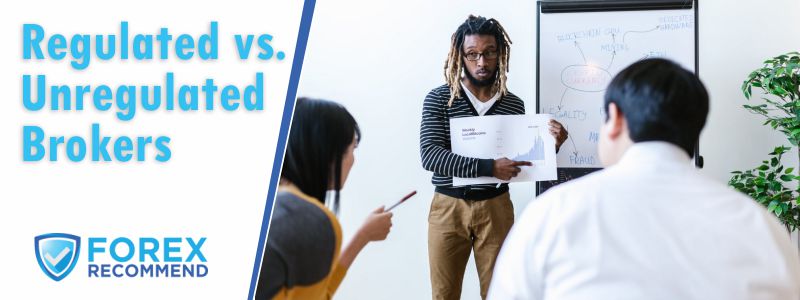 Foreign exchange, or FX, is one of the largest and most liquid markets in the world, with an average daily trading volume of more than $6 trillion. Because the foreign exchange market is open, 24/5 retail traders and investors have a broad range of options.
Foreign exchange, or FX, is one of the largest and most liquid markets in the world, with an average daily trading volume of more than $6 trillion. Because the foreign exchange market is open, 24/5 retail traders and investors have a broad range of options.
To date, forex trading has seen a significant rise in popularity owing to its accessibility and potential. Broker companies offer online trading platforms, and they play a crucial part in the whole trading process.
Regulator-approved licenses are the norm for most of these brokers. Potential investors might feel more confident when dealing with registered Forex brokers because of the credibility and trust they instill in them.
However, there are also a few unregulated Forex brokers operating in the financial sector. This is because there is a certain amount of interest from investors.
Top 10 Forex Brokers
Broker
Rating
Regulators
Min Deposit
Leverage
Website
Top 10 Forex Brokers
Broker
Rating
Min Deposit
Leverage
What is a regulated broker?
Regulated brokers are those who are registered and regulated by financial regulatory agencies. Regulated brokers' financial activities are monitored by the local regulatory organization.
As a regulator in the financial sector, a regulatory agency is tasked with preventing any fraudulent acts from taking place. Consumers are also aware of excessive risk in the market, which is monitored by these experts.
Trading operations of licensed brokers are conducted following local regulatory rules, regulations, and industry standards. They are audited by the authorities in charge.
If a regulated broker fails to adhere to the rules imposed by the regulator, the agency may take legal action and potentially revoke the broker's license.
What are the benefits associated with using regulated brokers?
The benefits associated with using Regulated Brokers include the following:
- Transparency
- Client Fund Security
- Resolution in case of disputes
- Protection from fraudulent activities
1. Transparency: Traders profit from licensed brokers since their business practices are honest and open. Because of strict and legal mandates, the client's interests are protected while not being manipulated.
The regulatory body must provide financial reports regularly. Subsequently, a member's membership can be terminated if the broker does not comply with the rules, and this behavior will subsequently be communicated to the traders, ensuring that they are aware.
It is critical, therefore, that traders verify with the appropriate authority to see whether the broker has a good reputation and whether their license is current.
Some of the most popular market regulators that traders must look out for include.
- Financial Conduct Authority (FCA) in the United Kingdom
- The Australian Securities and Investment Commission (ASIC) in Australia
- The Bundesanstalt für Finanzdienstleistungsaufsicht (BaFIN) in Germany
- The Cyprus Securities and Exchange Commission (CySEC) in Cyprus
- The Financial Market Supervisory Authority (FINMA) in Switzerland
- The Financial Market Authority (FMA) in Austria
- The Financial Sector Conduct Authority (FSCA) in South Africa
2. Client Fund Security: Regulated brokers are required to keep all client funds in segregated accounts, which are held with top-tier banks in the countries in which they are regulated.
This ensures that the funds that clients deposit into their trading accounts are not used towards any activities of the broker such as daily operations.
This also means that clients can withdraw their funds from their accounts at any given time using reliable withdrawal methods.
3. Resolution in case of disputes: When forex traders have an issue with their broker, they can report the broker to the local regulatory authority, which will resolve the dispute. However, with unregulated brokers, there is no authority to back the trader up or to provide support if there are disputes.
4. Protection from fraudulent activities: Licensed and regulated brokers may not partake in any fraudulent malpractices because they may lose their license and face severe consequences.
Regulated brokers may not manipulate prices, interfere with the trading platform, open positions that work against their client, withhold client funds, or carry out any other activities.
Which brokers are the most-regulated brokers?
The following forex brokers are the best and most-regulated brokers in the industry.
- Exness
- AvaTrade
- IG Group
- HotForex
- Plus500
- Interactive Brokers
- Saxo Markets
- CMC Markets
- TD Ameritrade
What is an unregulated broker?
Brokers who are not registered with or regulated by a regulatory organization are considered unregulated.
Because they are not subject to any laws or restrictions imposed by financial regulatory organizations, they are free to trade as they see fit. Choosing an unlicensed broker comes with its own set of disadvantages.
Why are there unregulated brokers?
There are hundreds of unregulated and unlicensed Forex brokers active across several financial markets, offering their financial services to global traders. These forex brokers are not only actively offering their services, but they have a dedicated following of traders that refuse to use any brokers other than unregulated entities.
These brokers claim to provide something of value to their clients and they tend to succeed in attracting their attention. When they do this, they provide a lot of power or promise immediate results.
There are unregulated brokers who are operating and working towards obtaining licensing in certain areas, while others do not have any intention of operating legally, which is what makes them scams. The cost involved with obtaining licensing can easily cost millions, which is a massive deterrent for those starting a brokerage firm.
In addition, an unregulated brokerage firm can offer a wide range of trading products and services than a licensed firm can. While this may help to attract investors, it is often used to entice them into high-risk ventures where they may gain an unfair edge over the customer and inflict a great deal of harm to them.
Clients who fall victim to a scam have very little or no options after they have been taken advantage of. A fundamental advantage of offshore registration is the ability to evade taxes, which serves as one of the main reasons why some brokers want to stay unregulated.
The finest unregulated Forex brokers can save the money that would have otherwise gone to governments and regulatory institutions by not having a license. Because of cheaper taxes and other perks, unregulated forex brokers are not required to do certain activities and actions that registered forex broker houses are required to perform regularly.
It is common practice in this industry to have regular audits and checks by regulatory organizations, and no one will ever show up at the doors of unregulated brokers to go through their books and records.
Permit applications may take a long time and money to complete, as is well-known in the industry. Regulators are often obliged to collect trading costs for their services since they are not funded by their governments.
Therefore, the charge might be in the six-figure range, which can be a barrier for new broker companies. The reason for this is that many broker firms choose to operate as unregulated entities until they have amassed sufficient cash and satisfied enough clients to warrant an application for regulation.
Another explanation for the brokers' failure to apply for a license from the regulating organization is that they may be in a tax haven. Because of this, they do not have to pay any taxes and do not require a license for any of their activities.
A country's financial regulators have no control over the actions of unlicensed foreign exchange brokers.
ESMA, the European Securities and Markets Authority announced in 2018, indicating that all EU-based firms' retail customers must adhere to the specified restrictions on new holdings, as well as the ban of advantages that are utilized for incentive trading.
While this has a limiting effect on the potential reach of Forex trading, it does not have any effect on unregulated Forex firms.
The best offshore US Forex brokers are not always malevolent or deceitful. For a variety of reasons. These firms are exempt from the need to have their products approved by a respected regulating authority, and this might even benefit “regular” traders.
Some of the top offshore Forex brokers for United States traders may not have a CFTC license, but they nonetheless provide a range of features that even experienced traders cannot refuse.
They may invest more money on no deposit promotions, deposit incentives, signals for signals, webinars, and other delights since unregulated brokers have cheaper operating expenses.
Large incentives and freebies are appealing to most traders, but not everyone is interested in these “kind presents.” Primal human inclinations are at the root of this behavior; however, generous incentives can serve as a driving factor because they tend to be beneficial for both the trader and the broker that offers them.
If traders use an unregulated Forex broker, they can access their trading account from anywhere in the globe since these organizations do not place any geographical limitations on their local and global clients.
This is a concern for American traders, who are now restricted from using EU-based Forex and binary services. Unregulated brokers may be useful for investing in the foreign currency market since they are less concerned with legal and even political difficulties when traders choose to deal with them.
What are the risks of choosing an Unregulated Forex Broker?
Unregulated forex brokers expose traders' funds to enormous trading dangers. Brokers who are licensed by a regulatory body must abide by its laws and regulations. Unregulated brokers, however, could perpetrate fraud and abuse their customers.
Multiple advantages and peace of mind are available to retail investors who work with authorized brokers. Despite this, being regulated offers no assurances.
Some of the risks involved with using unregulated forex brokers include.
- Client fund safety cannot be guaranteed, and traders can risk their investment if they run into a scam broker.
- Unregulated brokers are not bound by any laws, rules, or regulations and this means that if the broker is fake or a scam, traders cannot register a complaint with any market regulator.
- Unregulated brokers can stop their operations and online trading platforms as there is no guarantee that they will remain operational. There are no financial obligations that the online broker must fulfill and therefore, they are not tied to any requirements.
- The information and data of retail customers are not safe with an unregulated broker if they are involved in illegal and fraudulent activity.
How to avoid unregulated Forex Brokers?
When it comes to picking an unregulated online broker, many investors are either ignorant of the necessity of doing so, or they fail to make an informed choice. Before depositing any money into an account, make sure the broker traders are considered is trustworthy and properly licensed by checking the firm's website to see who the regulating body is.
The first step to avoid an unregulated broker that may be scam starts with being able to recognize a scam or fake broker. The internet and social media platforms are filled with forex trading websites that try to convince unsuspecting victims that they can make millions overnight.
Most people who have invested in forex through these sites have lost significant portions of money. Not all scammers will offer forex and they could offer alternative investments such as gold or renewable energy, promising high returns without any indication of the risks.
There are also many fake financial professionals, fake law firms, and malicious entities who claim to be appointed by an authority offering their services for a fee. In return for their services, they offer funds to recover investments that have been lost to scam brokers.
To avoid being scammed by a fake unregulated broker, retail customers must note the following red flags.
- There is a get-rich mentality that the broker tries to force
- There is guaranteed success promised.
- There is little or no contact or background information on the broker.
- There is continuous unsolicited marketing.
- If the broker claims to have regulations and licensing, the numbers provided are either linked to other companies, or they cannot be found on the market regulator's website and register.
- There are negative broker reviews or warnings from other traders and market regulators about the entity.
Which is the safer between a Regulated and Unregulated Broker?
A well-regulated Forex Broker is safer than any unregulated broker.
Forex must be regulated because of the sheer volume of money moving through the market every day, which makes it an appealing target for fraudsters and other white-collar criminals.
They have discovered that founding brokerage businesses, collecting money from retail customers, and then devising methods to get away with it is the best approach to scam people.
As part of their scam operations, they fake their regulatory status by duplicating legitimate brokers' web pages and even go to considerable measures to use the whole trading process against their customers.
To avoid fly-by-night operators taking advantage of unsuspecting consumers, forex authorities have put in place numerous measures to guarantee that only those licensed to conduct forex brokerage companies may collect money from them.
Forex regulators' responsibilities may be summarized as follows.
- Brokers' licensing and oversight. As a result, only the most qualified individuals in the sector are permitted to occupy the most senior positions in these forex brokerages.
- Ensure that brokers adhere to the segregation of money for traders. As a result of segregation, traders' money is stored in a different financial institution from that of the broker.
- Make sure the reporting criteria are met. According to forex regulatory organizations, forex brokers are expected to provide reports of their actions and specific trading data of their customers regularly for review.
- Sanctions for market breaches are enforced. Forex regulators have the legal authority to act against rogue brokers if they are found to be engaging in fraudulent operations.
- To maintain market integrity and improve investor trust, forex markets must be regulated to ensure that all players are playing on an equal footing. Because brokers who offer liquidity for retail traders hold opposing positions to their customers, the demand for forex regulation is bolstered. Forex authorities must guarantee that neither beginner nor advanced traders are purposefully exposed to market circumstances that favor them.
What are the differences between Regulated and Unregulated Brokers?
The differences between regulated and unregulated brokers relate to the following components:
- Compliance and Non-compliance with regulations
- Quality Control
- Client Safety
- Transparency
1. Compliance and Non-compliance with regulations: Foreign exchange regulatory bodies require that registered brokers follow the rules and regulations they have been given. Non-regulated brokers, on the other hand, are exempt from this requirement.
Regulated brokers are required to be licensed and registered in their place of origin. Quality control and regulatory requirements must be met to be licensed as a regulated forex broker, and this means that the quality control standards of the forex regulator in that nation will be met.
There is no guarantee that the non-regulated brokers will adhere to quality control and regulatory requirements since they are neither registered nor permitted.
2. Quality Control: Another main distinction between registered and unregulated brokers is the presence of quality control measures that are always in place. The issue now is what quality control is, what it comprises, and why it is useful in the first place.
Regulated brokers are required to be registered and audited regularly and their business practices must be reviewed frequently to ensure transparency and quality control overall. Subsequently, they must abide by the rules set out by the agency responsible for overseeing foreign exchange in their country.
Regulated brokers, for example, are required to verify that their customers' currency transactions can be completed with sufficient cash.
In addition, they should have enough money on hand to repay their clients if the firm goes bankrupt. Non-regulated brokers do not have to meet any of these regulatory requirements since they are not registered or audited regularly.
3. Client Safety: Licensed brokers are better equipped to protect their customers than unregulated ones. Unlicensed or unregulated brokers are not exempt from adhering to the rules just because they are not licensed or regulated.
What this means is that greater measures need to be adopted to bring even non-regulated brokers inside the regulatory umbrella. Customers who interact with unregulated brokers, no matter how evident it may seem, run a greater risk.
Furthermore, the risk is different from that associated with any other financial trading. If a consumer deals with an unregulated broker, they run the risk of going bankrupt with no recourse.
Customers who work with a licensed broker can be certain that their forex trades will be honored.
4. Transparency: Regulated brokers are transparent, as required by the market regulator for these brokers to maintain their license and permission to continue offering financial services and trading products. With a regulated broker, beginner and advanced traders will always know where they stand.
Unregulated forex brokers are not held to the same rules or regulations, and they can hide vital details and information, and traders may not know until it is too late.
Table of Contents




